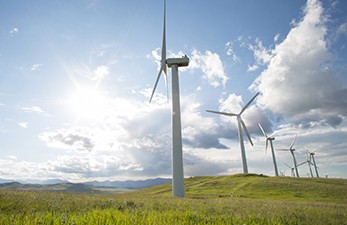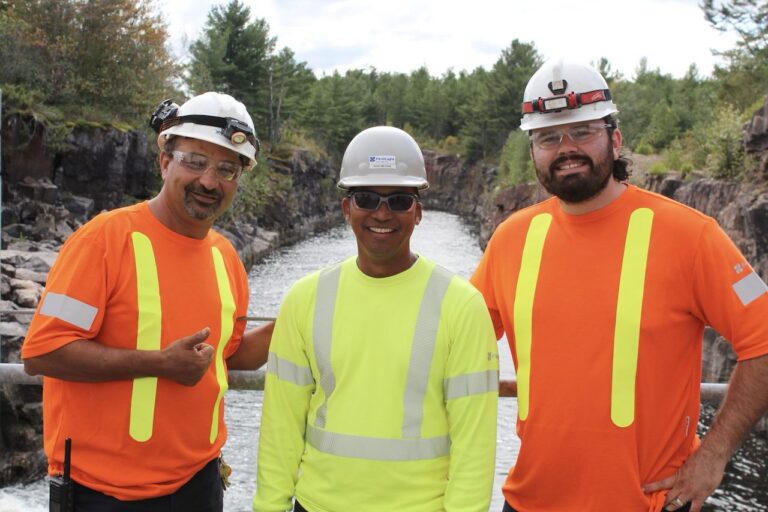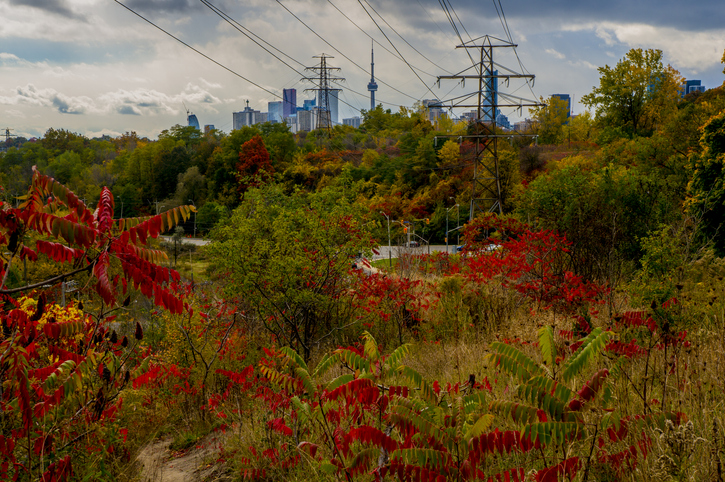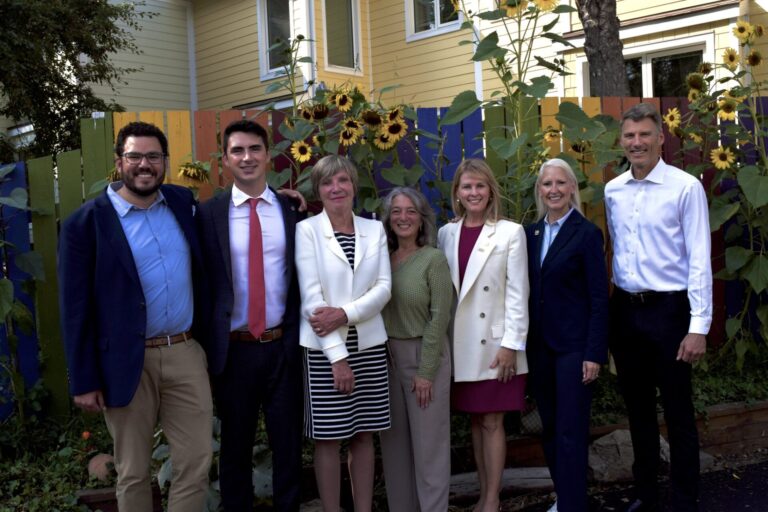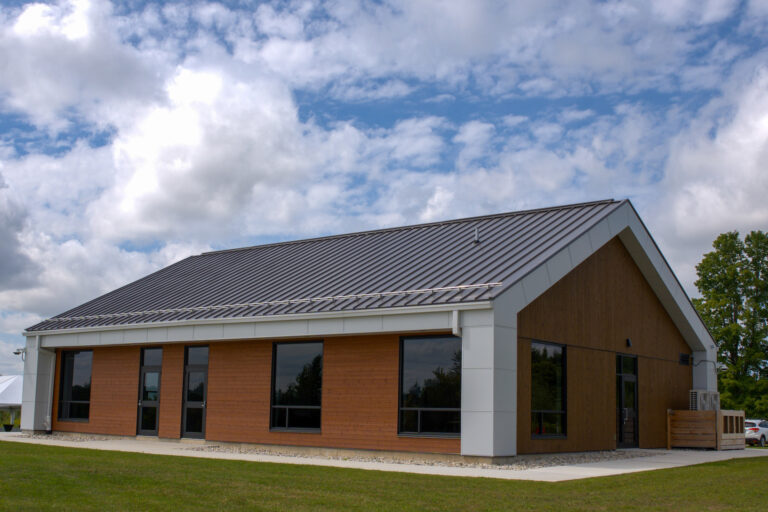Wednesday, September 17, 2025
The Province of British Columbia is taking action to speed up permitting for renewable-energy projects to meet growing demand for clean power, address climate change and secure energy independence for British Columbians in the face of unprecedented trade threats.
Government introduced the renewable energy projects (streamlined permitting) act to the legislative assembly on Wednesday, April 30, 2025. If passed, the act will expand the authority of the BC Energy Regulator (BCER) to oversee renewable-energy projects, building on the Province’s investments to generate the clean power needed to create a healthier environment and sustainable future for British Columbians.
“B.C. has a once-in-a-generation opportunity to become a world leader in clean-energy production and we will take every action possible to see that all British Columbians benefit from this opportunity,” said Adrian Dix, Minister of Energy and Climate Solutions. “Renewable energy projects like wind and solar are urgently needed to provide affordable clean power, create jobs, and strengthen and diversify our economy, especially during this period of global market uncertainty.”
If approved, these changes will establish the BCER as the primary permitting agency for renewable-energy projects and transmission lines. The legislation will help simplify the approvals process for these projects, eliminating the need for cross-ministry and agency permitting, by establishing the BCER as the single window for permitting in accordance with strict environmental standards. This will be completed in a staged approach through regulation.
The BCER’s initial focus will be on the North Coast Transmission Line (NCTL) project and the wind- and solar-power projects in BC Hydro’s 2024 call for power. This will help accelerate the expansion of British Columbia’s electricity grid and meet the demand in growth arising from critical-mineral and metal mining, port electrification, hydrogen and fuel processing, and shipping projects under consideration.

The proposed legislation would also:
- exempt the NCTL project and the nine wind projects selected in the 2024 call for power from the environmental assessment processes and allow government to do the same for other wind-power projects in the future; and
- enable the BCER to establish a new rigorous regulatory framework for renewable-energy projects through consultation with First Nations, ensuring that environmental standards are upheld.
“The BC Energy Regulator is pleased to see the introduction of this legislation and has been engaging with ministries and others to prepare for this expanded mandate that will include permitting processes and engagement functions,” said Michelle Carr, CEO and commissioner, BC Energy Regulator. “Our staff are working across seven regional offices to ensure energy activities are carried out safely, responsibly and in alignment with provincial goals and BCER’s vision for a resilient energy future.”
The Province is committed to accelerating decisions on renewable-energy projects responsibly.
The BCER has demonstrated expertise at getting projects moving quickly, while providing robust regulatory oversight through the lifecycle of projects. This is a natural evolution of the BCER’s role, which initially focused on oil, gas and geothermal development, then expanded to include hydrogen and now, renewable energy.
“Our focus is on delivering safe, reliable and affordable energy to the families and businesses we serve,” said Doug Slater, vice-president, Indigenous relations and regulatory affairs, FortisBC. “Collaborating with local power providers and Indigenous organizations helps us meet the energy demands of homes and businesses in the southern Interior while supporting regional development. Our hope is that these legislative and regulatory changes will help streamline processes and accelerate projects to efficiently deliver power to our customers, including our plans to add up to 1,100 GWh of energy supply as soon as 2030.”

Expanded BC Energy Regulator (BCER) Responsibilities:
- To ensure rapid authorization and robust regulation of renewable-energy projects, including wind, solar and transmission lines, the proposed legislation will allow for statutory decisions related to these projects to be transferred from ministries and other agencies to the BCER.
- Additionally, the BCER will be given new authority over the construction and operation of wind and solar projects to ensure safety and environmental standards are upheld.
Streamlining the Environmental Assessment Requirements:
- To expedite priority renewable-energy projects, the proposed legislation will allow for the streamlining of the Environmental Assessment Act in relation to the North Coast Transmission Line (NCTL) project, the nine wind projects from BC Hydro’s 2024 call for power, and future wind projects.
- The BCER has existing expertise and technical regulations that may be applied to wind-power projects to support comprehensive project oversight in the absence of an environmental assessment. For example, the BCER board regulations include these features:
- pre-engagement requirements and the incorporation of Indigenous knowledge into project planning;
- requirements for design and construction;
- assessment of socio-cultural and environmental effects;
- suspension of operation or decommissioning of a processing facility; and
- records management and submission of required reports to the BCER.
- In addition, the BCER can work with First Nations to co-develop measures to effectively address any concerns and provide technical support to First Nations land departments.
- While the BCER’s technical regulations for these new renewable projects are being developed and consulted on, the BCER may use permit conditions on a project-by-project basis to ensure that early work on these projects is conducted in an environmentally responsible manner.
Agricultural Reserve Land:
- To allow for more timely decisions on priority projects on agricultural reserve land, the proposed legislation will allow the BCER to approve non-farm use of land for renewable-energy projects and transmission lines.
- BCER would still be required to consult potentially affected parties, including First Nations and local governments, before authorizing non-farm use and would have to consider relevant information, such as the impact to the farmland or if the non-farm use is compatible with agricultural land in the long-term.
- The BCER is accustomed to authorizing non-farm use for oil-and-gas activities while consulting on and administering these activities, including oversight of pre-activity assessments and post-activity reclamation.
Regulations:
This legislation is intended to be enabling legislation and will be brought into force through regulations. If it receives royal assent, these regulations are proposed to be implemented in stages, as follows:
- Phase One: A regulation establishing the BCER as the primary authorization agency for the NCTL project. BCER will have authority to issue provincial natural-resource authorizations for wind projects.
- Phase Two: A regulation establishing the BCER as the primary regulator and permitting authority for renewable-energy projects. Wind and solar projects will require an activity permit from the BCER.
- Phase Three: BCER board regulations establishing a robust regulatory framework for the lifecycle oversight of wind and solar projects that will ensure safety and protection of the environment.
For further information, visit: https://www.bc-er.ca/

